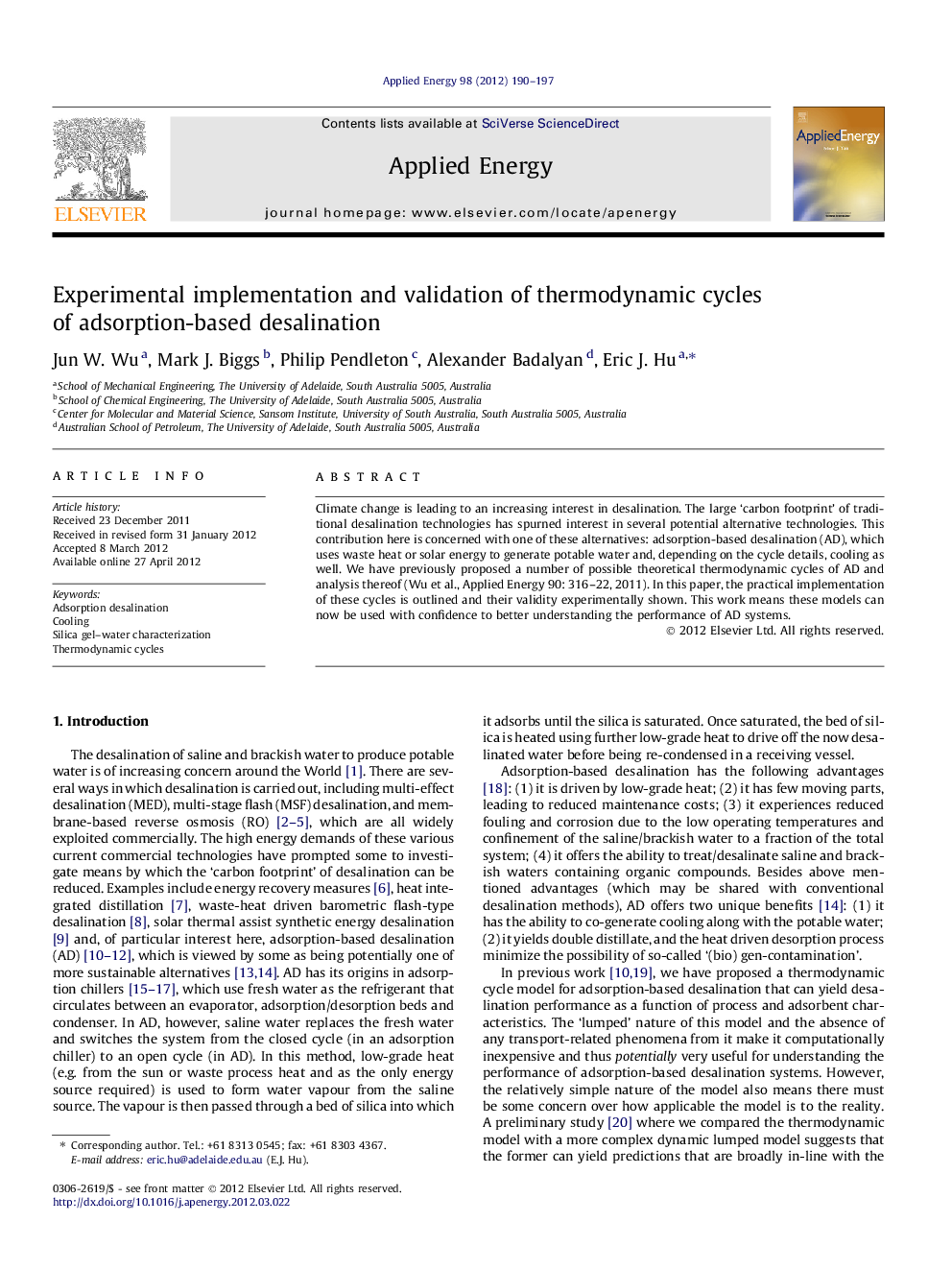| Article ID | Journal | Published Year | Pages | File Type |
|---|---|---|---|---|
| 243203 | Applied Energy | 2012 | 8 Pages |
Climate change is leading to an increasing interest in desalination. The large ‘carbon footprint’ of traditional desalination technologies has spurned interest in several potential alternative technologies. This contribution here is concerned with one of these alternatives: adsorption-based desalination (AD), which uses waste heat or solar energy to generate potable water and, depending on the cycle details, cooling as well. We have previously proposed a number of possible theoretical thermodynamic cycles of AD and analysis thereof (Wu et al., Applied Energy 90: 316–22, 2011). In this paper, the practical implementation of these cycles is outlined and their validity experimentally shown. This work means these models can now be used with confidence to better understanding the performance of AD systems.
► A number of potential AD cycles are successfully implemented experimentally. ► The estimated performance from the proposed model agreed well with experimental data. ► We also reported the tested isotherms of the silica gel used in the experiment.
